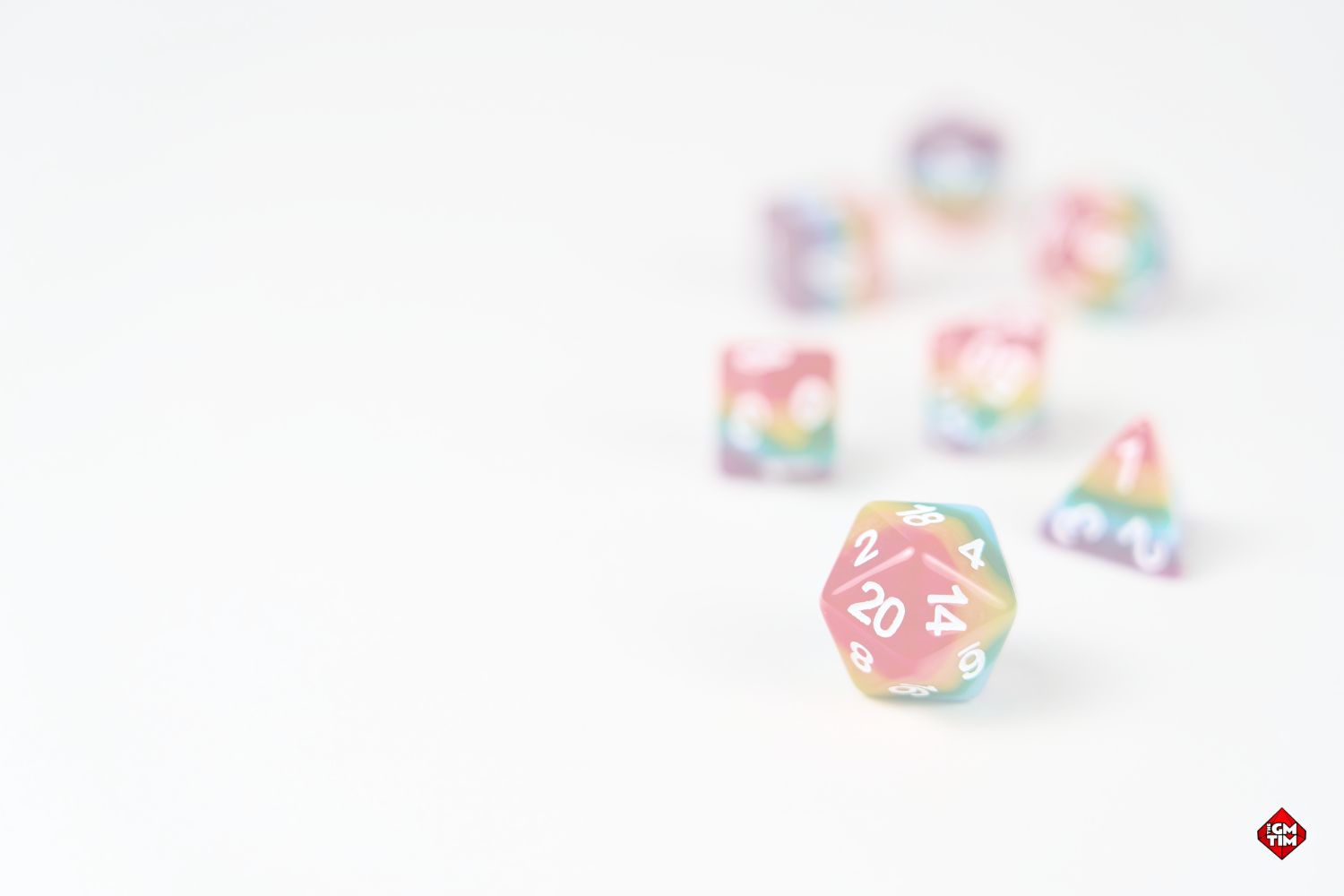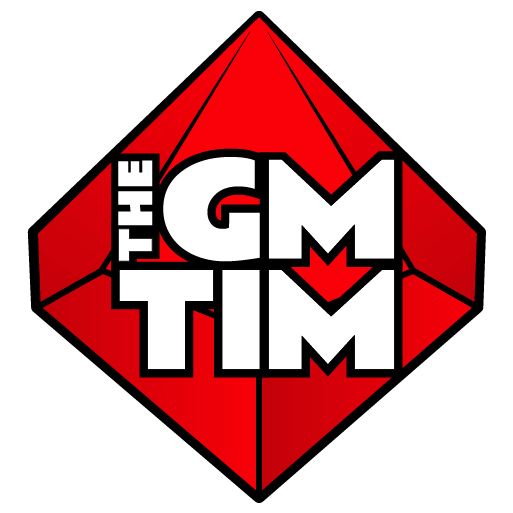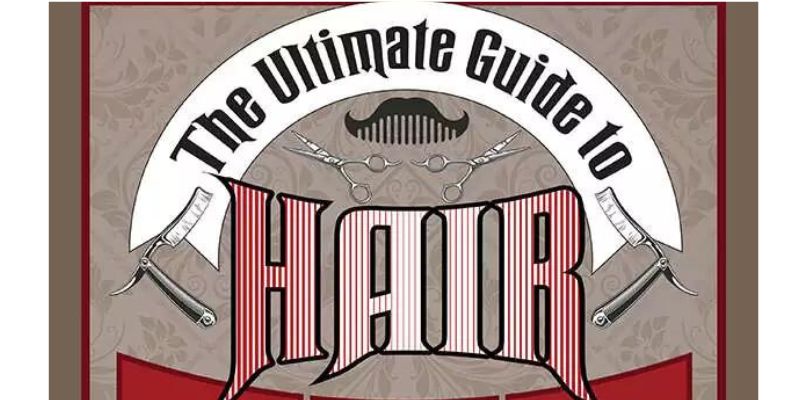My earliest characters played, that were not Spiderman, were often female characters. Not out of gender dysphoria, these early characters let me explore queer feelings I didn’t know how to name or express—not safely, anyway. While the out-of-game world told me I’d die sick and alone because I was a deviant for who I was assumed to be attracted to, in-game I could live the same adolescent and young adult life my friends did. That’s the power of TTRPGs: they let us explore and rehearse lives bigger than the boxes society forces us into. 25 years later and I’m still playing at tables, conventions, and events, which require active inclusion. ‘All are welcome’ isn’t enough anymore. Really, it never was. Active inclusion is base line. We need Queer Joy.
Queer Joy: The Series
Today, June 28, is the anniversary of the Stonewall Riots and the first Gay Liberation march in San Fransisco. These two events are very big moments in discussions around queer and civil rights. We have a lot we can learn from the people who rioted, rebelled, and marched. Sometimes it feel like we have lost that part of us. For a little in 2020, it felt like we might have another moment of real civil rights. For me, the more I learn(ed) about Stonewall and the marches that followed, the more I felt inspired in my own life. This 3-part series on bringing Queer Joy into your gaming table is inpired by those legends from my cultural past that inspire me every day. Part 1, below, Challenges the current status quo in tabletop gaming and why its harmful. Part 2, out on Monday, July 30, Is my personal story about learning why queer joy at the table is important. Part 3 on Wednesday Juy 2, Provides you with 4 actions you can take to combat bias and introduce queer joy to your tables with ease.
Enjoy.
Disclaimer
Before I get into this, I acknowledge, yes, some of the examples I give in this discourse are personally anecdotal, yet repetitive across tables and years. For larger issues, I link references to back up the claims within my anecdotes. None of this is to say “every single table” so don’t come at me with “not all” crap because it doesn’t matter. The fact that enough exist to cause a problem is enough. Instead of “Not-all”ing me and others, use your awareness to call out the inequity when you see it. Be a part of the solution instead of creating a new problem.
What Is Queer Joy?
Let’s define queer joy. It Gets Better Canada suggests Queer joy “is about reclaiming space, visibility, and agency in a world that often seeks to silence or erase LGBTQ+ voices.” Queer joy is something I learned in overt circumstances like Pride, yet not in daily aspects till much later in my life. Like many queer folk, I had to fight my own conditioned and internalized homophobia. When I finally started to break through those fears and embrace joy, boy-howdy did I pursue it. Queer joy is not just passive representation; I have to challenge myself, and society, every day. It’s active unapologetic selfhood, chosen family, creativity, messiness, glamour, and resistance.
The Neutrality Myth: Why Silence Fails Queer Players
I hate that in 2025 we still must explain, and often defend, diversity. It’s wild. Especially in tabletop role playing games (TTRPGs)—an entire hobby rooted in people who were othered during the jocks-vs-nerds decades of pop culture. And yet somehow, we’ve ended up with this weird cultural detour where being “welcoming” is seen as the same as being inclusive. Spoiler: it’s not.

Inclusivity and, in the case of this discourse, Queer Joy isn’t about diversity for diversity’s sake, checkboxes, or being tolerated. It’s about being celebrated, creating a stronger support, and maybe even another rebellion. I use the word queer through this discourse to include all of us in the alphabet mafia; two-spirit, lesbian, gay, bisexual, transgender, queer and questioning, intersex, and asexual or agender.
My Existence is Political
“Ugh, GM Tim,” I can hear you say. “It’s just games, why do you have to bring politics into it?” Partly because it affects me all the time. Partly because I don’t see enough of my peers doing it. Unfortunately, there are still people, especially those with or in power, who consider others as less-than. This othering politicizes queer existence because it becomes something to be erased. Saying “let’s leave politics out of it” isn’t neutral—it’s harmful.
I will grant you that All are welcome could be a start point, though it’s a bare to any gaming table and should not be viewed with the same lens as a rules lawyer. Unfortunately for some folks, even all are welcome is only conditional. It’s the floor, not the ceiling. Worse still, it often becomes a smokescreen for doing nothing. There’s this idea that if we “just don’t make a big deal” about inclusion, then the table is neutral and everyone is fine. All this does is encourage tolerance or apathy. Apathy is dangerous for marginalized people. It essentially signals that since you feel no hardship, the status quo must be fine, and we just won’t worry about making some people feel uncomfortable. Tolerance is even worse. If we tolerate those who are intolerant of others, we risk eroding tolerance itself.
In Canada, where I live, our Charter Of Rights and Freedoms implicitly acknowledges this. No right is absolute or inherently more important than another. Freedoms, such as expression or religion, can be limited by laws protecting other rights, like equality and safety from discrimination or hate. For example, in Canada we don’t actually have freedom of speech, our freedom of expression is limited by hate speech laws, and religious freedoms do not override someone else’s right to live openly and safely, even if certain religious beliefs disagree with their existence.
In a game sense, it’s an unbalanced class mechanic that benefits most of the classes except one or two, yet it keeps making it through playtesting, because only certain people are being listened to in the playtest. Since the rest of the players don’t ever use the affected class, they don’t care about the mechanic. Essentially that neutrality serves the dominant group, even if it is unfair for those who really love the affected class.
Toxic Bias
Therefore, these self-proclaimed “neutral” game spaces often end up reinforcing the same old defaults: that everybody is cisgender, straight, able-bodied, and white until otherwise stated. When someone says, “I don’t think about sexuality in my games,” what they actually mean is they are thinking about straight sexuality so constantly and unconsciously that it’s invisible to them. That’s not neutral. That’s bias.
In Part 2 on Monday, I’ll talk more about my own bias-journey, why prioritizing queer joy over tropes matters deeply, and how my understanding evolved.






0 Comments